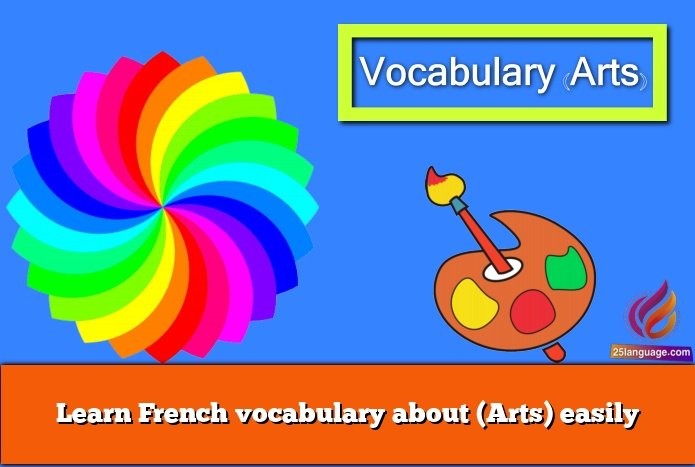The Verb “Être” and Its Expressions

Mastering the French verb “être,” meaning “to be,” unlocks a world of expression in the language. fundamental to forming sentences, it serves as a building block that transcends simple description. You’ll encounter “être” in everyday conversations, idiomatic expressions, and even when stating your identity.Join us on this journey to explore its various forms and unique expressions, empowering you to communicate with confidence and flair in French!
Mastering the Verb “Être” and Its Essential Expressions
The verb “être,” which means “to be,” is one of the most essential verbs in the French language. it is an irregular verb, meaning its conjugation does not follow a typical pattern. Mastering this verb is crucial as it forms the foundation for many expressions and constructs sentences in various tenses.Here are some basic conjugations of “être” in the present tense:
- Je suis – I am
- Tu es – You are (singular informal)
- Il/Elle/On est – He/She/One is
- Nous sommes – we are
- Vous êtes – You are (plural/formal)
- Ils/Elles sont – They are
in addition to self-identification, “être” is essential for expressing states, occupations, and characteristics. Here are some practical expressions using “être”:
- Je suis étudiant(e) – I am a student
- Ils sont en retard – They are late
- Elle est belle – She is stunning
Furthermore, “être” is used in passive constructions and with certain adjectives to describe a state of being. For a clearer understanding,refer to the following table that showcases some common expressions using “être” along with their English translations:
| French Example | English Translation |
|---|---|
| Nous sommes heureux. | We are happy. |
| Tu es prof de français. | You are a French teacher. |
| Il est fatigué. | He is tired. |
| Vous êtes prêts? | Are you ready? |
| Elle est à la maison. | She is at home. |
Exploring the Versatility of “Être” in French Language
In French, the verb “être” means “to be” and is used in various contexts, making it one of the most versatile verbs in the language. It serves as both a main verb and an auxiliary verb, playing crucial roles in forming tenses and conveying states of being. Some key uses of “être” include:
- Describing Identity: “Je suis étudiant.” (I am a student.)
- Indicating Location: “Nous sommes à la maison.” (We are at home.)
- Expressing Conditions or States: “Il est fatigué.” (He is tired.)
Additionally, “être” is essential in passive voice constructions and in forming the passé composé of certain verbs, notably verbs of movement and reflexive verbs. Below is a simple table to illustrate some common forms and usages of “être” with translations:
| French example | Usage | English Translation |
|---|---|---|
| Nous avons été surpris. | Past Participle used in Passé Composé | we were surprised. |
| elle est heureuse. | Present tense for state | she is happy. |
| Il est allé au cinéma. | Auxiliary verb in Passé Composé | he went to the cinema. |
| Je suis ici. | Indicating location | I am here. |
Practical Applications of “Être” in Everyday Conversations
In French,the verb être is an essential component for various expressions and indicates existence or identity. It is used to describe a state or condition, form descriptions, and convey essential facts. Here are some key uses of être in everyday conversations:
- Identity: Used to state who someone is.
- location: Used to describe where someone or something is.
- Conditions: Used to express feelings or conditions.
Such as:
Je suis étudiant. – I am a student.
Nous sommes à la maison. – We are at home.
Elle est heureuse. – She is happy.
| French Example | Usage | English Translation |
|---|---|---|
| Je suis fatigué. | Showing a state of being | I am tired. |
| Ils sont en vacances. | Describing a location | They are on vacation. |
| Nous sommes amis. | Indicating identity | We are friends. |
Unlocking the Meaning Behind Expressions with “Être
in French, the verb être, which means “to be,” is not just used in its most basic form; it also appears in numerous fixed expressions and idiomatic phrases. Understanding these expressions is vital as they frequently enough convey meanings that differ from their literal translations. Here are some key expressions that utilize être:
- Être en forme – “To be in shape” or “to be fit” (e.g., Je suis en forme aujourd’hui – “I am in shape today”)
- Être à l’heure – “To be on time” (e.g., Il est toujours à l’heure – “He is always on time”)
- Être dans le coup – “To be in the loop” or “to be trendy” (e.g., Elle est dans le coup avec les nouvelles modes – “She is in the loop with the new trends”)
Another crucial aspect of être is its use in passive voice constructions and with adjectives to describe the state of being. French adjectives agree in gender and number with the subject, which is crucial when using être. Here are a few examples to illustrate:
| French Example | Grammar Rule | English Translation |
|---|---|---|
| Elle est contente | Adjective contente agrees with feminine singular subject | She is happy |
| Ils sont fatigués | Adjective fatigués agrees with masculine plural subject | They are tired |
| Nous sommes prêts | Adjective prêts agrees with masculine plural subject | We are ready |
Key Takeaways
nous avons exploré le verbe essentiel “être” et ses nombreuses expressions dans la langue française. En tant que l’un des verbes les plus utilisés, “être” non seulement sert à indiquer l’état ou l’identité, mais il est également la clé pour comprendre et former de nombreuses phrases et structures grammaticales. Nous avons découvert comment l’utiliser dans différents contextes, que ce soit pour décrire des personnes, des lieux ou des sensations.
Maintenant que vous avez acquis ces connaissances, je vous encourage vivement à pratiquer activement. Essayez d’intégrer le verbe “être” dans vos conversations quotidiennes, écrivez des phrases en utilisant ses diverses expressions, et n’hésitez pas à demander des retours pour parfaire votre maîtrise. Rappelez-vous que la langue française est riche et nuancée, et chaque petit pas que vous faites vous rapproche de la fluidité.
Soyez confiants et curieux ! L’apprentissage d’une langue est un voyage, et chaque leçon vous amène plus près de votre objectif. Continuez à explorer, à poser des questions, et surtout, à vous amuser avec la langue française. À très bientôt pour notre prochaine leçon !




























